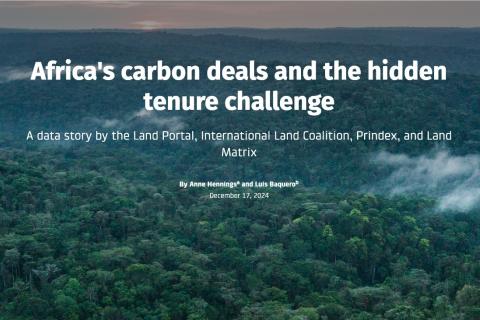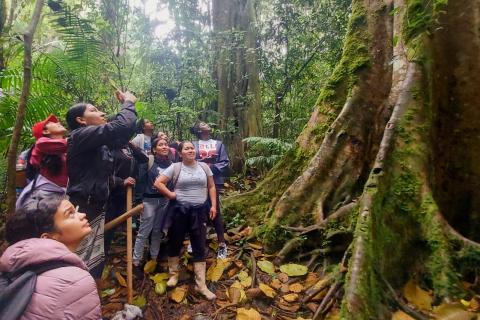Las historias ayudan a dar vida a los datos. Explore nuestra rica colección de historias de datos sobre derechos a la tierra y la propiedad, y comparta su propia historia en el Land Portal registrándose hoy.
Historias de la red
Conozca las historias más recientes, redactadas por los socios y colegas de nuestra red.
The Land in Peace Project Piet tells you about: Dutch Cooperation on Land Administration in Colombia
The Land in Peace Project: Dutch Cooperation on Land Adminsitration in Colombia
Originally published in June 2022 and thoughtfully updated in January 2024, this interactive data story explores the impactful collaboration between Colombian institutions and Dutch cooperation to strengthen land administration as a pillar for lasting peace.
Protecting the Roots of a Sacred Tree
With USAID support, an Afro-Colombian community received a collective land title, guaranteeing ownership of their traditional lands.
Ganadores del Concurso de Historias de Datos
Nuestro concurso anual de Historias de Datos convoca historias dinámicas relacionadas con la tierra que capten la atención y presenten datos de manera innovadora y atractiva. Consulte la lista de ganadores recientes aquí.
A New Hope
This is the story of how dozens of communities in Mozambique are mapping and documenting their own land rights. "A New Hope" is the winner of the Land Portal's Second Data Story Contest, and is authored by the team at Terra Firma Mozambique.
The burden of history: Land and a divided community in San José Sinaché, Guatemala
We meet Rosalía in a roadside café in a dusty town in the Quiché department, in Guatemala’s Western Highlands. She lowers her voice whenever people come in – you never know who might be listening. Land is sensitive stuff, especially in Quiché, a region that still bears, perhaps more than any other part of Guatemala, the scars of the civil war (1960-1996) – as we will see. In 2018 alone, 15 defenders of land rights in Guatemala have been killed with total impunity, several of them in Quiché.
The Power of Land
This story was submitted as part of the Land Portal Data Stories Contest and was the recipient of the second prize.
How Satellites can locate potential land grabs in Africa
This data story gives an overview of current land grabbing databases, their lack of spatial information and how remote sensing datasets can overcome this lack when being used to detect large scale agricultural production schemes.






